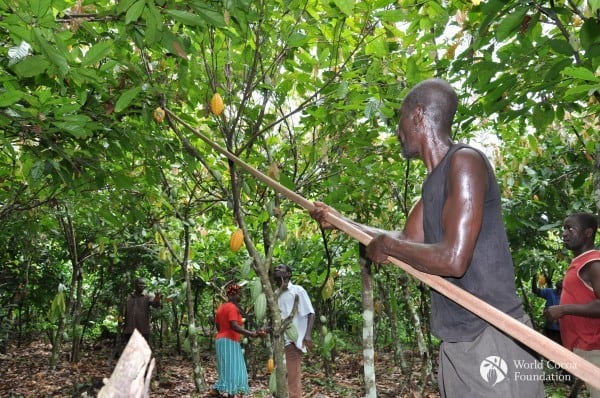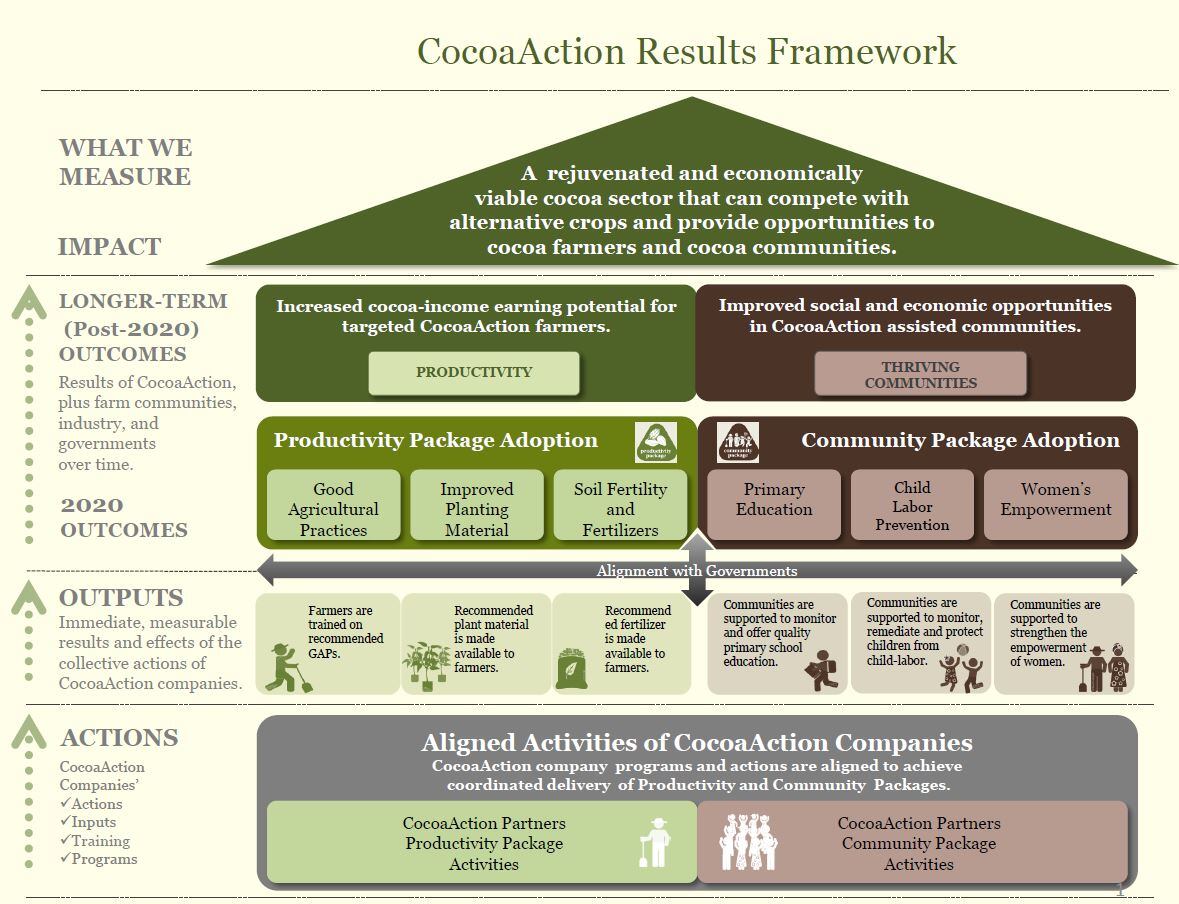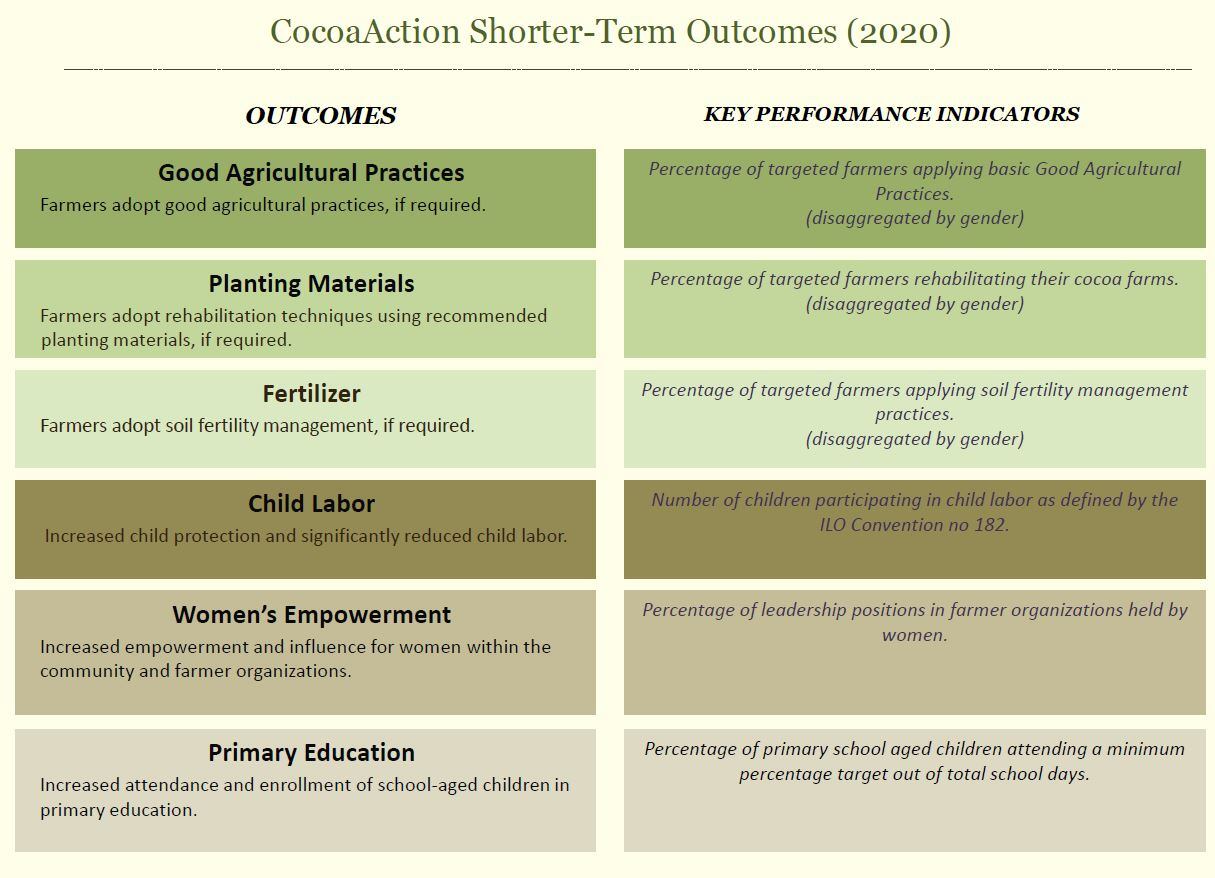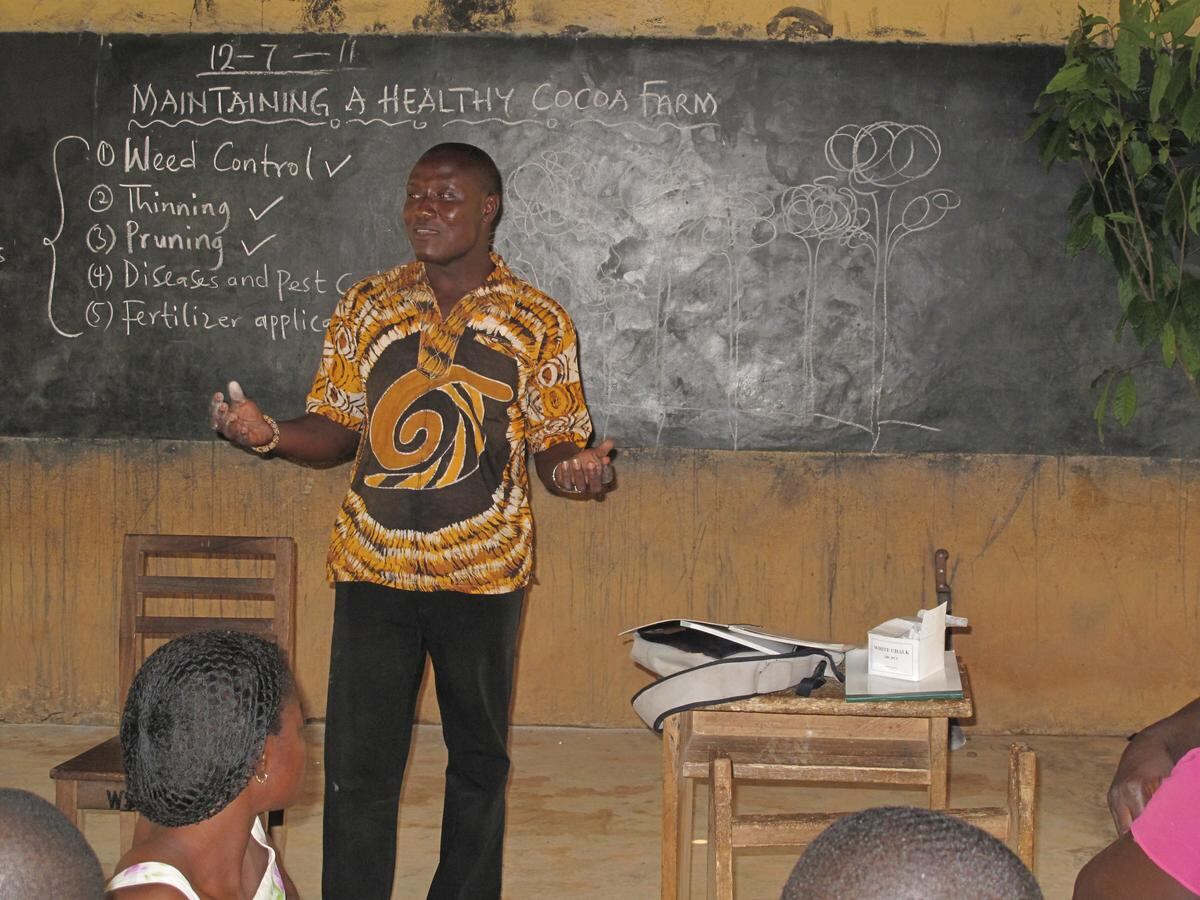Speaking to ConfectioneryNews, Tim McCoy, who is leading the industry-backed body while it searches its next permanent president, said: “We’re not just focused on productivity.”
CocoaAction – WCF’s sustainable cocoa platform supported by 10 major cocoa and chocolate firms such as Mars and Nestlé - aims to reach at least 300,000 cocoa farmers in Côte D’Ivoire and Ghana by 2020 to boost cocoa income and create thriving cocoa communities.
What about living income?
But NGOs contend there is insufficient evidence a larger farm size and increased productivity significantly boosts net farm income.
The 2015 Cocoa Barometer, a report by NGOs such as Oxfam, Solidaridad and the VOICE Network, said the chocolate industry’s drive for sustainable cocoa was fixated on productivity, largely neglecting extreme poverty in the sector.
Rising incomes

CocoaAction hopes its focus on productivity through good agricultural practices will boost the income of 300,000 cocoa farmers at least 100-200% by 2020, compared to 2015 levels. Tony Lass, director of Fox Consultancy and former head of Cadbury’s global cocoa supplies for almost four decades, says West African cocoa farmers are typically within the UNDP’s poverty scale, earning around 80 US cents a day and supporting large families. Under his scales, a 100%-200% increase would take a West African cocoa farmer’s income to $1.60-$2.40 a day.
The report called on the industry to develop a baseline for living income to bring farmers out of poverty.
It said poverty is chiefly responsible for sector malpractice, such as human trafficking, illiteracy, unlawful child labor and malnutrition.
An ‘issue industry has been accused of shying away from’
Living income will not be part of the first CocoaAction plan as McCoy said stakeholders had found it difficult to define. “How can you if 'living income' is not established?” McCoy asked.
But he added: “The issue of living income is something that is top of mind. Cocoa farmers living in poverty is in no-one’s interest. If poverty flourishes, you have all sorts of other problems flourishing.
“This has been an issue industry has been accused of shying away from.” But he argued antitrust concerns were a good reason to shy away.
“This is why crop diversification is so important,” he continued. WCF will encourage farmers to cultivate other crops alongside cocoa to provide additional income.

Farmers and key decisions
The International CoCoa Farmers Organization (ICCFO) has around 600,000 cocoa farmer members across the globe.
WCF president recruitment
WCF is recruiting for a new president after former head Bill Guyton resigned at the end of last year. It is currently shortlisting candidates and plans to announce its next permanent president by late Summer.
Its secretary general M. Sako Warren has alleged smallholder farmers are largely excluded from decision making in chocolate sustainability initiatives and estimates programs only reach 10% of the cocoa farming population.
McCoy said WCF hoped to scale up CocoaAction and added: “There’s a regular and close collaboration with farmers.”
He said WCF’s cooperation with national agencies such as Côte D’Ivoire’s Conseil du Café Cacao and Ghana’s Cocobod allowed farmers’ opinions to flow into CocoaAction’s strategy.
He added WCF also sponsors farmers to attend its annual partnership meetings. It has made provisions for 50 cocoa farmers at its next meeting in Abidjan this year, mainly from West Africa due to ease of travel.
McCoy continued that WCF membership is open to farmer organizations.

Seats on the board
Technology Gap

West African cocoa productivity has failed to improve in the last 15 years partly due to lack of mechanization, according to a recent report by Hardman Agribusiness. Acting WCF president Tim McCoy said a technology gap still existed. The organization is running a Digital Green project that aims to educate farmers on good agricultural practices by projecting videos onto buildings in public places. It has also signed a memorandum of understanding with Ghana’s Cocobod for a pilot project on irrigation. The body is also exploring a safer tool to split cocoa pods that could replace machetes.
UIREVI, an Ivorian cocoa cooperative, is the organization’s only coop member. The cooperative is headed by Toussaint N'Guessan, who is also chairman of the World Cocoa Producers Organization (WCPO) – another cocoa farmers' group.
WCF has 13 board members, including representatives from Mondelēz, Ferrero and Hershey. Some are permanent members, while others are elected. N'Guessan could stand, but would need to be elected, said McCoy.
ICCFO has not applied for WCF membership, but has called on WCF for support with its programs. ICCFO is hoping to run projects on gender equality and youth participation and plans to develop a global cocoa farmer database.
McCoy recently met with Warren and anticipates WCF would accept ICCFO as a member should it apply. “I don’t know of a case of rejection,” he said.
But could cocoa farming organizations and cooperatives be priced out of WCF membership?
WCF charges annual membership fees that are dependent on the size of the company. McCoy said fees range from low four digits to six digits with renewal required each year, but he would not specify exact numbers.
Financing
WCF says CocoaAction is a $400m commitment from its member companies across five years – 2015 to 2020. McCoy said that figure didn’t account for other investments made separately by member companies.
Asked if WCF members should make financial commitments public, McCoy said: “We cannot force them,” adding that each member understood it was a collective effort. “The real accountability will come through the M&E framework,” he said.
CocoaAction stakeholders
Barry Callebaut - Blommer Chocolate Company - Cargill - ECOM Agrotrade Ltd. - Ferrero - The Hershey Company - Mars, Incorporated - Mondelēz International - Nestlé - Olam
